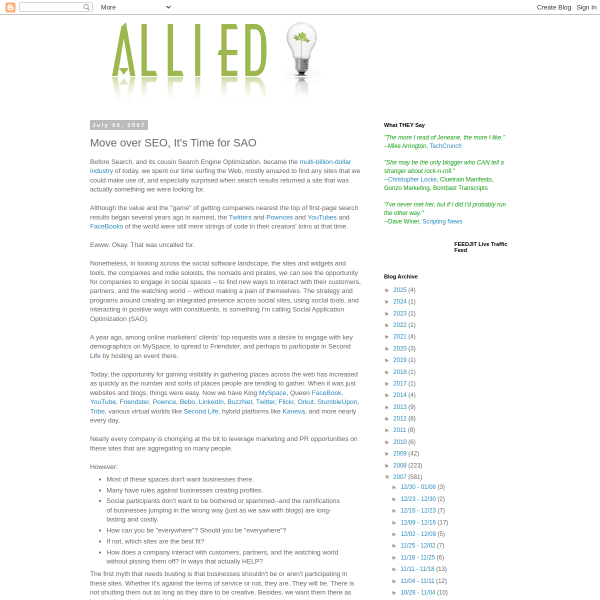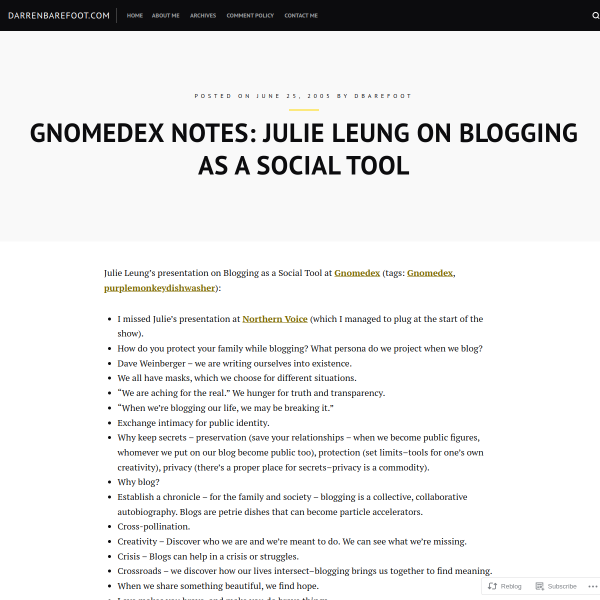"Are You My Friend, Yes Or No?"
Posted by Richard on Friday, 5 August 2005danah boyd: “From an autistic perspective, social life can and must be programmatically and algorithmically processed and understood on simplistic categorizable levels. The nuanced relationships that people regularly manage in everyday life are boiled down to segmented possibilities. When we teach autistic children to engage in social life, we teach them things like facial expressions. We tell them that a smile means goodness; that a frown should be concerning. Step by step, we dissect social affect and try to formalize it so that these kids can understand the world. This is also what we do with computers. How different is this from asking "Are you my friend, yes or no?"”
The above comes from a selection in The Best Software Writing I by Joel Spolsky, which I picked up at OSCON. It's a really great essay that talks about computer engineers programming in their ineptitude to social networking software, that is, they tend to think algorithmically while interacting with humans has far more nuance and unpredictability than software can ever hope to encapsulate.




